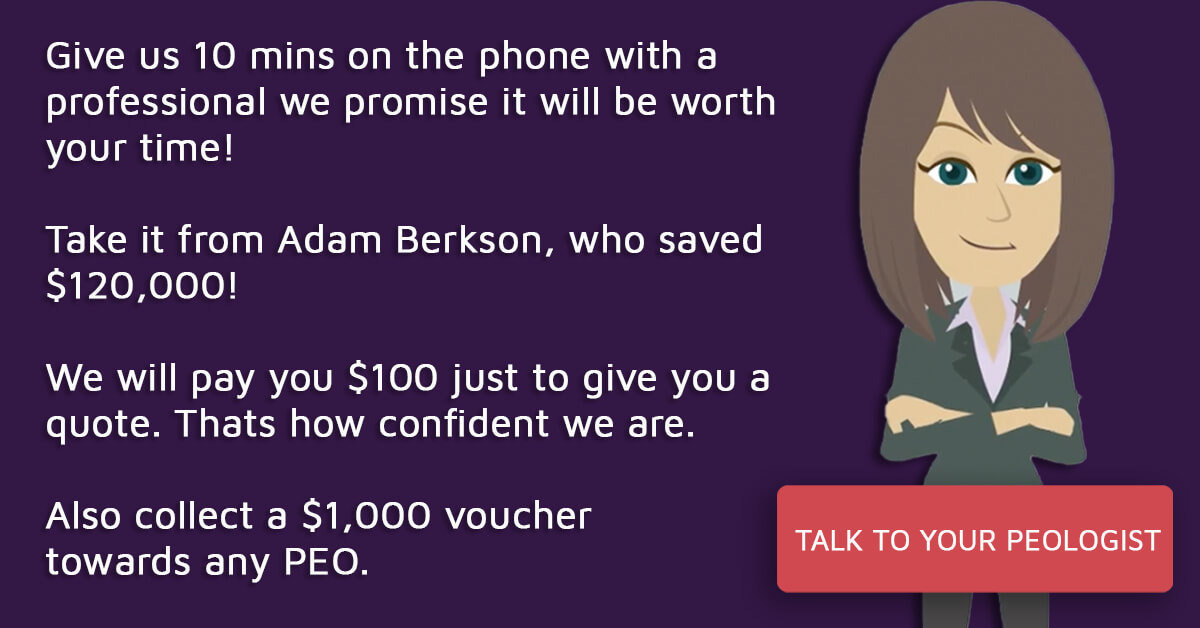
Why Do Insurance Brokers Need ThePEOPeople.com?/ Why you shouldn’t use an Insurance Broker.
This is what we write to insurance brokers behind the scenes. This is why they need us:
1. The clout and access to the right people to serve you and your clients
You might have clout with your local carriers, but this does not translate at all to the PEO world. Think of PEOs as new insurance carriers in your market.
You don’t know the executives. You haven’t gone on trips with them. You don’t have a large block of business with them (like the insurance carriers) so you aren’t that meaningful (there’s a big difference between potential business and actual sales). And to them, you are the new guy, and as big as you might be in the benefits niche, you aren’t known to them.
2. Access points
Without these vendor relationships and without the clout, you cannot deliver to your clients:
- The best rates
- The right service team (this is so critical in the complex sale and installation process)
- The right implementation team – (40% of these fail or really struggle to get out of the gate because the team you get is new or just not that good – you will not get the PEO’s A-team consistently – only by chance)
3. Communication and Inclusion
They don’t tell you what’s going on. They just don’t really get what a broker relationship is even in the brokerage division – because the majority of their business has always been direct, so they view prospects and clients as theirs.
4. Knowledge of the products
Let’s face it, you know insurance and you know the few carriers left in your market very well. You know how to shop them and navigate their constantly changing product offerings. You know alternative funding too.
But here’s what you don’t know:
You as an insurance broker don’t really understand the life of an HR professional.
For instance, how do HR and human capital management processes and workflows really operate?
If you knew all that, your clients wouldn’t be using multiple vendors who don’t work together and don’t communicate with each other and paying more for the medical on top of it. And they certainly don’t integrate together.
The daily life of an HR person is inundated with multiple processes you don’t understand very well. You look at this from your limited – albeit important – specialty that you love and make a lot with.
You may know benefits and some benefits administration and compliance and wrap documents (hopefully) and 5500 forms, but you don’t know payroll.
You don’t know on-boarding and recruiting and engagement and performance management.
You don’t know what time and attendance really needs to be and why, let alone job cost accounting integration and compliance, PTO, the ACA and the FMLA.
You don’t know the fifty other things these platforms provide for your clients beyond benefits – things they’re doing now in a really unproductive and inefficient manner.
You certainly don’t know Worker’s Comp.
These are just some of what holds back your clients from being all they can be. It’s complicated and rapidly changing.
Unless you have a dedicated infrastructure that does PEO research, and consistently shops for each of these modules and features, and your people are multifaceted beyond what you do now – you can’t do the right job for your client.
You don’t constantly monitor all the different PEOs, their different software and all the modules, which ones work and which don’t, which have a good user interface and which don’t, the pros and cons of each, and the different servicing styles of each of these 479 plans.
5. Getting quotes
You don’t understand the massive amount of underwriting required just to get quotes – it is way more time-consuming than just getting health quotes.
Plus, you will be inundated with more questions on every account from every PEO that you thought you answered already five times.
Let’s face it you are usually getting a PEO quote because you are playing defense
– because otherwise someone else will get offer them one, or you have a high renewal quote and/or you’re desperate.
And let’s face it, you make twice as much on regular health insurance brokerage per employee compared to when you sell your client on a PEO, and you hope the client never finds that out because they think you’re objectively acting on their behalf.
- Also, getting PEO quotes for your clients uses up a lot your time and resources.
- It’s another whole process you aren’t used to with new reps and systems.
- Also, you definitely don’t want to get the wrong answers because it is so complicated.
- And you definitely don’t want to lose control of the account (which happens with a PEO because do eliminate or do most of your current function).
How can ThePEOPeople.com help you?
PEOs are all we do – it’s essentially a different industry that has health insurance as its biggest expense component. But it’s like when someone says, “Can you help me with my auto or home insurance?” The word ‘insurance’ is there but it’s a different industry.
Have you ever sold payroll? Do you understand the integration between payroll and 401(k) plans and the liabilities?
Did you just learn what the letters HRIS actually mean, and do you understand the vast systems that are behind those four letters?

